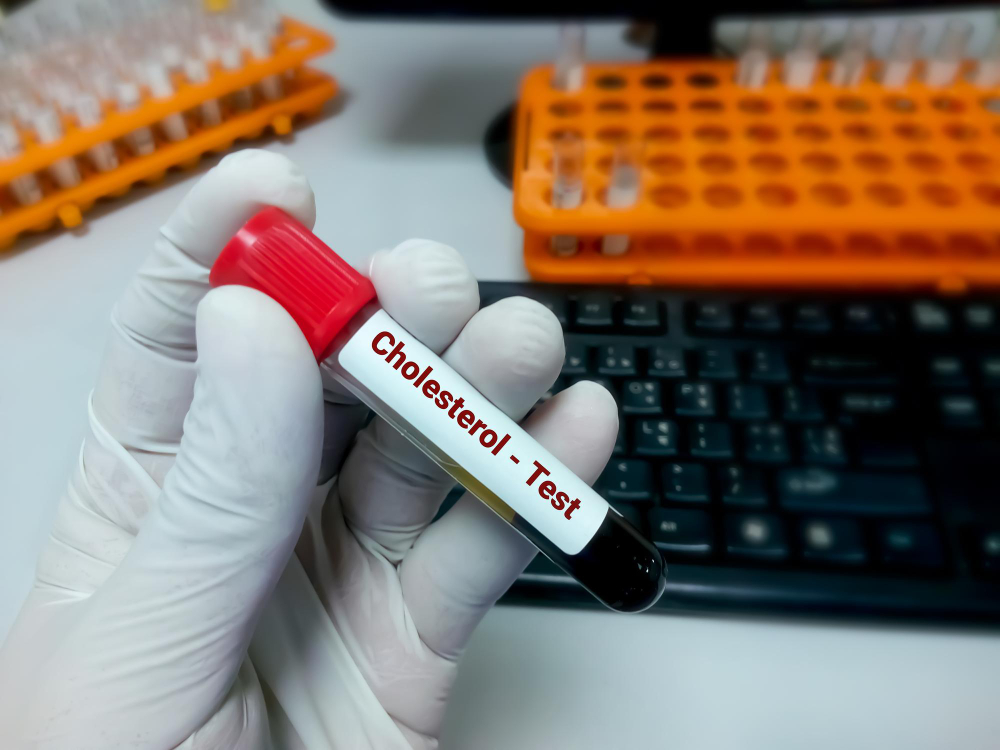Hyperlipidemia

- Hyperlipidemia, also known as high cholesterol, is a condition characterized by elevated levels of lipids (fats) in the blood, including cholesterol and triglycerides. It is a significant risk factor for cardiovascular diseases such as coronary artery disease, heart attack, and stroke.
- Risk factors for hyperlipidemia include genetics, unhealthy diet high in saturated and trans fats, lack of physical activity, obesity, smoking, excessive alcohol consumption, and certain medical conditions such as diabetes, hypothyroidism, and kidney disease.
- Management of hyperlipidemia involves lifestyle modifications such as adopting a heart-healthy diet low in saturated and trans fats, regular physical activity, weight management, smoking cessation, and limiting alcohol intake. In addition to lifestyle changes, medications such as statins, fibrates, bile acid sequestrants, niacin, or PCSK9 inhibitors may be prescribed to help lower lipid levels and reduce the risk of cardiovascular events. Regular monitoring of lipid levels and adherence to treatment recommendations are essential for effectively managing hyperlipidemia and reducing the risk of complications.



